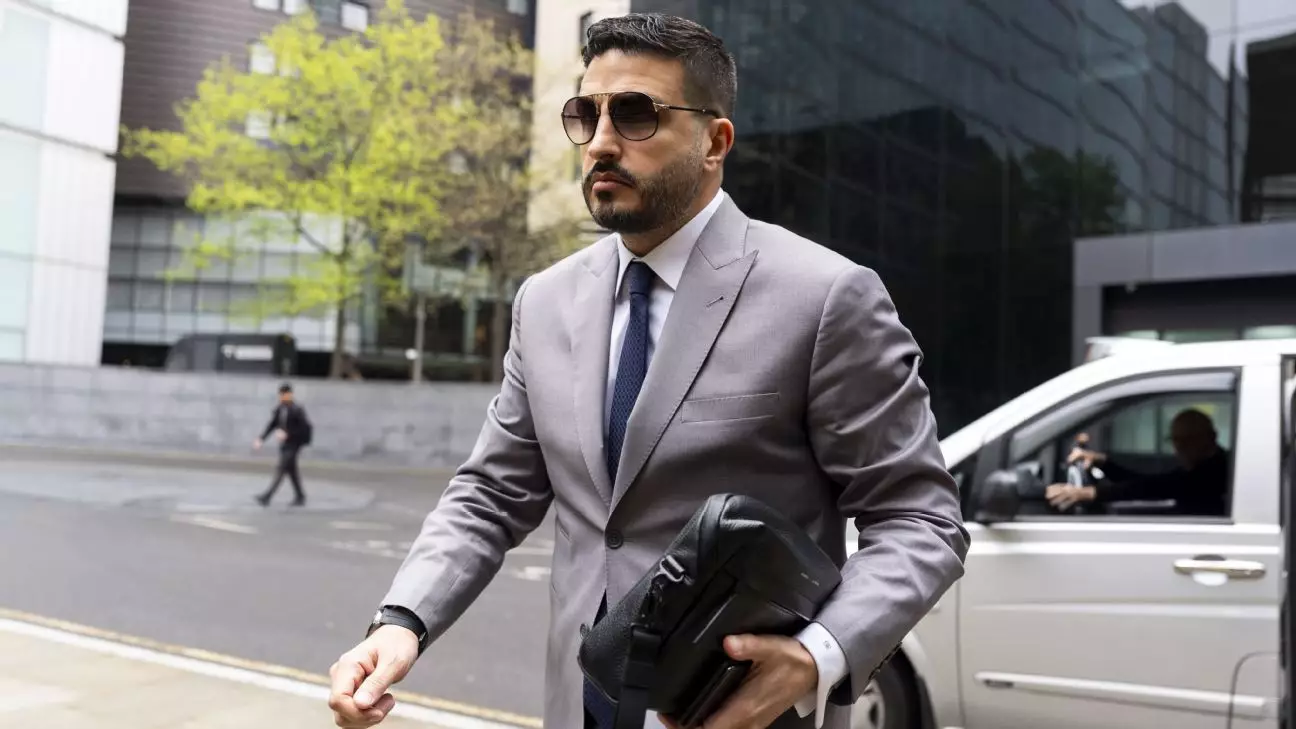A soccer agent, Saif Rubie, is currently on trial in a London court over an email he sent to Marina Granovskaia, a senior director at Chelsea Football Club. The email in question demanded a large commission for the transfer of a player, Kurt Zouma, from Chelsea to West Ham. Rubie’s email hinted at a previous incident involving another soccer agent, Kia Joorabchian, and implied consequences if his demands were not met.
Rubie has denied any wrongdoing, claiming that his email was not intended as a threat. He argued that his reference to Joorabchian was meant to signify legal action, rather than intimidation. Rubie emphasized that he would never risk a confrontation with such a powerful figure as Granovskaia, who is closely associated with Chelsea’s former owner, Roman Abramovich.
Rubie’s defense team maintains his innocence, describing his email as a product of frustration rather than malice. His lawyer, Matthew Radstone, questioned Rubie’s intent in sending the email and Rubie clarified that he did not mean it as a threat in any way other than a legal one. Rubie expressed disbelief at the notion that he would jeopardize his career by threatening someone as influential as Granovskaia.
The trial is ongoing, with Rubie expected to conclude his testimony soon. The case highlights the complexities of professional relationships within the world of soccer agents and clubs. It also raises questions about the boundaries of communication and negotiation in the context of high-stakes player transfers.
The legal battle between Saif Rubie and Chelsea’s Marina Granovskaia serves as a cautionary tale about the importance of clear and respectful communication in the sports industry. It underscores the potential consequences of making veiled threats or assertions in professional correspondences. As the trial continues, it remains to be seen how the court will ultimately judge Rubie’s actions and intentions.
